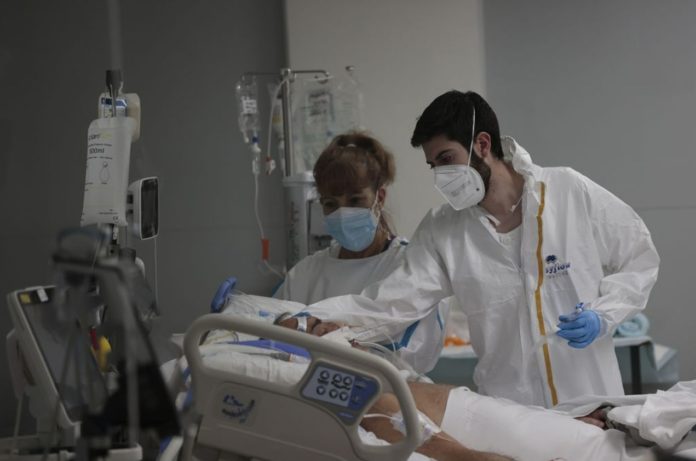A new study published today reports the most common issues observed in Coronavirus patients after discharge from hospital.
COVID-19 has been linked to a wide range of pulmonary issues, but we don’t often discuss the possible effects on other organs.
The largest multi-institutional international research to date on COVID-19-related brain issues discovered that around one in every 100 patients hospitalized with COVID-19 will likely have central nervous system complications.
These consequences can include stroke, bleeding, and other life-threatening events.
“Much has been written about the overall pulmonary problems related to COVID-19, but we do not often talk about the other organs that can be affected,” says study lead author Scott H. Faro.
“Our study shows that central nervous system complications represent a significant cause of morbidity and mortality in this devastating pandemic.”
Dr. Faro began the investigation after seeing that the published research on central nervous system consequences in COVID-19-infected hospitalized patients was based on a small number of cases.
To obtain a more full picture, he and his colleagues evaluated approximately 40,000 COVID patients hospitalized between September 2019 and June 2020 from seven university hospitals in the United States and four western European countries.
Confusion and altered mental status were the most common reasons for hospitalization, followed by fever. Comorbidities such as hypertension, heart illness, and diabetes plagued many of the patients.
A total of 442 acute neuroimaging abnormalities were most likely linked to the viral infection. In this large patient population, the total incidence of central nervous system problems was 1.2 percent.
“Of all the inpatients who had imaging such as MRI or a CT scan of brain, the exam was positive approximately 10% of the time,” Dr. Faro adds. “The incidence of 1.2% means that a little more than one in 100 patients admitted to the hospital with COVID-19 are going to have a brain problem of some sort.”
Ischemic stroke was the most prevalent complication, with a rate of 6.2 percent, followed by cerebral bleeding (3.72 percent) and encephalitis (0.47 percent), a brain inflammation.
Additionally, the researchers detected a small percentage of uncommon findings, such as acute spreading encephalomyelitis, a brain and spinal cord inflammation, and posterior reversible encephalopathy syndrome, a sickness that mimics many stroke symptoms.
“It is important to know an accurate incidence of all the major central nervous system complications,” Dr. Faro further explains. “There should probably be a low threshold to order brain imaging for patients with COVID-19.”
Source: RSNA.org/press21.
Image Credit: Getty
You were reading: Most common Post-COVID complications seen in patients who were hospitalized, according to the study
